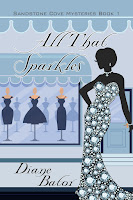
~*~*~*~*~
 |
| Canvas Tent in the Woods |
Based on true events, you are
about to read a grumbly tale:
One weekend
my dad announced we were going camping. He professed it was cheaper than motel
rooms with 7 people crammed on beds and rented cots (2 adults and 5 kids), and all
the meals eaten in restaurants. My parents were new to this and had borrowed
the gear.
 |
| Brown Bear ready to Eat me. |
Camping
never appealed to me. Far too rustic and dangerous, crevasse-like gouges marred trees where bears had scraped their claws down the length of the trunks. Deep
lakes and river rapids spoiled the fun. Never heard wolves howl in the
distance, but we were warned of skunks and wolverines. Rabid squirrels had been
found in the area. Biting insects swarmed about our ears. Horrible.
I disliked
going on vacation only to work my fingers to the bone: Cooking over a campfire
and lugging buckets of cold water to wash tin dishes took away from swimming
and exploring. The soap always thinned in the hard water or seemed to go away
altogether, which meant stuck-on food took forever to scrape off. Then, I had
to find a way to dump grease from the cast iron skillets so that beasties wouldn’t
find their way into camp.
I was given
the task to air out sleeping bags in the morning and return them to their
places in the afternoon. They always dwarfed me as I dragged them across the
ground, and the sun beating down on the old canvas gave the tent a strange
smell.
Headaches
plagued me after sleeping on the ground. One trip we were without a tent, and
arriving late to the campground, the only place left was on a hill. The next
morning I had slipped to the edge of a precipice and nearly died in the night.
Memory: when
between chores, mom and I walked along a path by the river, where we found a
dam made of branches and sticks. “Now, Kathy don’t let your brothers disturb
the dam,” Mom said. “It might be a beaver’s house with baby beavers inside.” It
was interesting to think a small animal could make such a large footprint, and
disturb an entire flow of a river.
 |
| Outhouse in the wilderness |
Going to the
toilet in the bushes or wait my turn at the outhouse was always the worst. Flies
were a terrible bother, and one never knew if a bee’s or wasps’ nest had taken
residence somewhere in there.
We used
flashlights to guide our way through the groaning, spooky forest in the night,
sit over holes where many others had squatted, and smell the leavings from
those bodies. Really gaggingly horrible.
One night my
brother dropped the flashlight in the hole. He returned the next day with my
other brothers, one of whom was around the age of 5 or 6. They realized the
flashlight hadn’t taken a dive into the sludge, but fallen onto a large
pile of poop topped with toilet paper. Horrifying with stinky residue, but
retrievable.
“Hey Jimmy,”
Tom said. “We’ll lower you down so you can grab the flashlight.”
John nodded.
“Sure. Let’s do it. We won’t drop you.”
With
heartfelt innocence, Jimmy smiled at them.
“We
promise,” John said as he raised the platform with the holes.
 |
| A Two-Seater |
They grabbed
Jimmy around his ankles and slowly lowered him into the cesspit.
Birdsong paused. Insects stopped flying, their buzzes strangled. A raven cried terror from a tree. Even the breezes had died in morbid expectation.
Birdsong paused. Insects stopped flying, their buzzes strangled. A raven cried terror from a tree. Even the breezes had died in morbid expectation.
Lower and
lower Jimmy went until his ankles were just above the walls of the pit.
“Can you reach it?” Tom yelled.
“Can you reach it?” Tom yelled.
Jimmy
coughed. “Almost.”
Tom and John
lowered Jimmy so that his entire body was beneath the pit’s rim. “Can you reach
it, now?” John demanded.
“Got it,”
Jimmy yelled. “Get me out of here.”
They hauled
him up, clutching the fouled flashlight. “Here.” He handed it to Tom.
They ran out
of the outhouse with their prize, placed it in its proper spot for the next person,
never telling anyone where it had been.
Until much
much later.
Truly horrible.
~*~*~*~*~
Many thanks to wikicommons, public domain & my memory.























.png)
.jpg)


